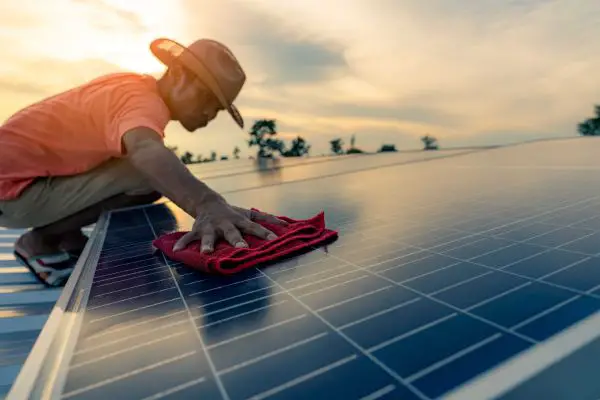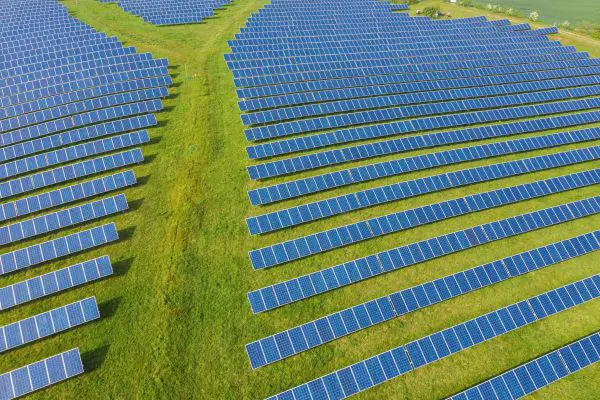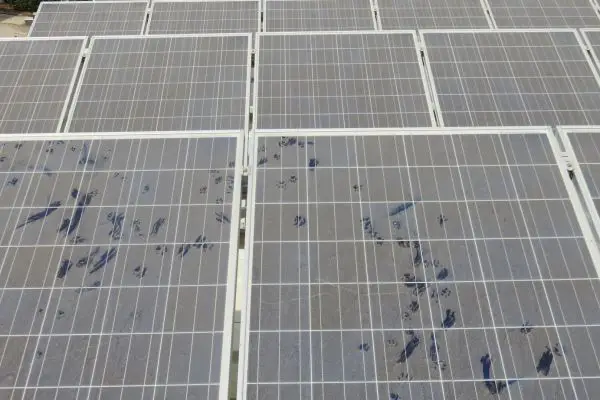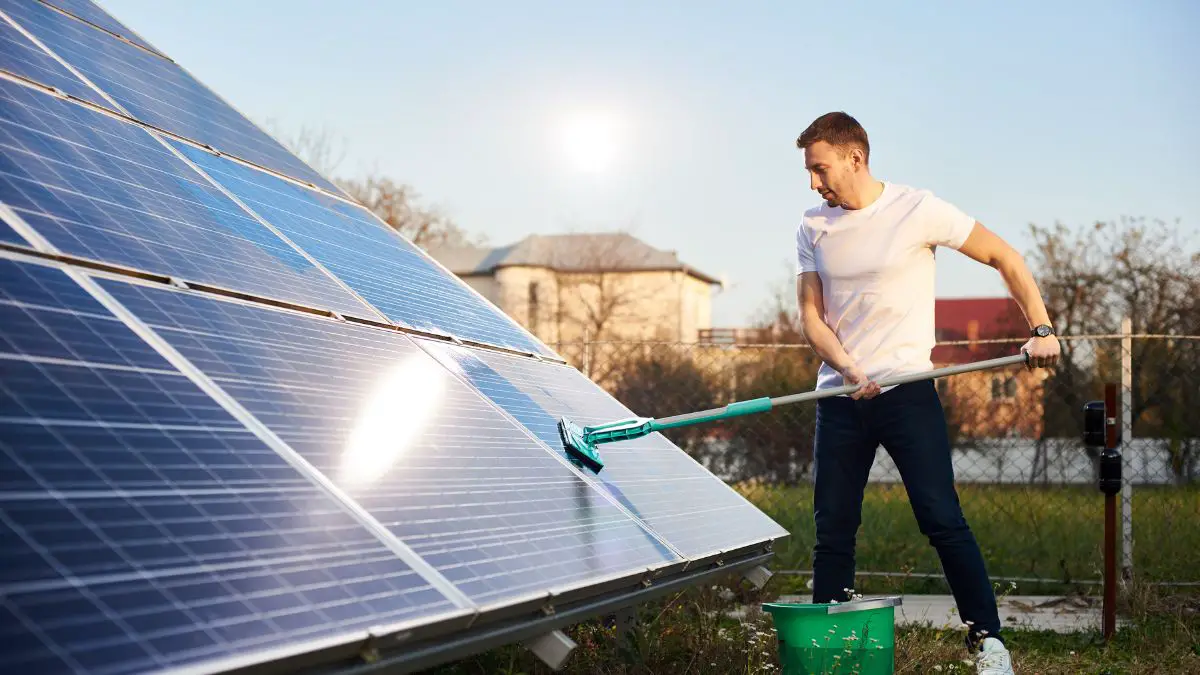How to Clean My Solar Panels: A Quick DIY Guide
Solar prosumers don’t just love saving money and the planet with their system. They also love how easy it is to maintain their panels!
The thing is, panels have a clever feature that makes them easy to clean – they rely on the positioning paired with natural elements. Usually, solar panels are installed with just the right amount of tilt (according to where you live and which side of the roof you have them on). Which means they are generally self-cleaning with the rain running across them to keep them clean.
But what happens when they get super dirty, there’s hardly any rain, and the other culprits, such as bird droppings, build up over time?
There’s no easy way of saying it! From time to time, you’ll need to either roll up your sleeves — or have someone else do it. So to save your money whenever possible, we have compiled a step-by-step cheat sheet for you to get them squeaky clean and at full capacity.
Do I Actually Need to Clean My Solar Panels?
Yes, and no.
Since our solar panels stay outside, the rain washes out most of the dirt. But if you live in a heavily polluted area or where it is dusty (usually close to industrial areas), your panels are bound to get pretty mucky. If you have leafy trees around, bird droppings are probably inevitable. That, plus grime, is nasty for the eye and on your energy bill.
But it’s not just about the looks.
Leaving your solar panels dirty or solely relying on the rain can actually drop their efficiency by 5%. Even more if you have a bigger solar panel system!
Don’t fret, though; I’ve got you! Cleaning your solar panels doesn’t have to be a hard job. So grab a friend or /family member and make ‘solar panel maintenance’ a to-do on the calendar!
4-Step Guide to Cleaning the Solar Panels

Manual cleaning is not that hard, and can be a good workout!
All solar panels are different, so make sure to read any specifications from the manufacturer before cleaning. If your solar panels are in a difficult place to reach, or are just too much work, you should consider professional cleaning.
When you have determined if manual cleaning is your choice (and is feasible), put the system off. You can’t risk getting water on the electrical components!
Right, let’s begin cleaning!
Step #1: Take Out Dry Debris
Dry debris are leaves, twigs, even bird poop (ew!). Gross as it is, don’t skip this step! Even though the rain would take care of most of the dirt, you still have to use your hands or the brush to get it off. Put your gloves on and get a bag for the debris.
The reason why this is important is that if water mixes with dirt, it will leave a nasty smear on the panels. This means more elbow grease for you, and is not good to look at! If you’re climbing onto your roof, ensure you are wearing safety gear, and you have someone looking after you.
Step #2: Hose Down the Panels
When you are sure all the dirt is brushed off, wash down the panels using the garden hose.
This process may be slow, but it’s safer than using the pressure cleaner. The high pressure can cause cracks in the panels, which invites more problems for you. Carefully get water on each panel.
Step #3: Pay Attention to the Yuckiest Areas
After washing the panels, you can look for super dirty spots. You can use a soft sponge dipped in clean water to scrub these spots. Gentle is the name of the game here so you do not damage your panels.
Now, of course you can go ahead and grab a cleaning product from the shelf. But in my experience, you should always avoid using harsh cleaning products, even if they are ‘safe.’
Try sticking to gentle dishwashing liquid, if possible. Make sure soap suds are washed off thoroughly to avoid streaks.
Step #4: Dry the Panels
Use the squeegee or a dry microfiber cloth to dry the panels. Make sure to wipe properly and in one direction to avoid water streaks. If it is a super sunny day, try to take out most of the water. You can then leave the solar panels to dry completely.
When you get your energy bill back, you’ll realize how much the cleaning has improved power generation!
How Are Industrial Solar Panels Cleaned?

Apart from manual washing, there are many automated processes to keep solar panels clean. These technologies are usually seen on an industrial level or when a homeowner has many panels and is also committed to water saving.
And frankly, water cleaning costs too, apart from being a waste of the precious natural resource. According to some estimations, it shoots up to 10% of the total operating cost of your panels.
But before we proceed, let’s make one thing clear.
Some of these methods are just too expensive for a humble prosuming household to even consider. And others are new technologies that are still at the R&D stage!
Robotic Cleaning
If this makes you think of little vehicles crawling up and down the panels, you aren’t far from the truth. This can be for places such as greenhouses, carports, and larger installations such as solar farms.
These robots clean the solar panels using soft microfiber clothes and airflow rather than water. They have a mini solar panel in their system, so they are recharged between operations. Moreover, some of the latest models can even be flown and dropped off by drones. How cute!
Waterless Vibration
A project funded by NASA and scientists at the Heriot-Watt University in Scotland found that vibration on the solar panels can shake the dust loose.
This involves attaching a DC motor on the back of the panel, which is remotely controlled to cause vertical vibrations, which literally shake the dust (cue the song “Shake it Off” by Taylor Swift).
Soap-Less Cleaning
Have you ever imagined cleaning with no soap? Well, imagine no more!
Many solar maintenance companies have found that using deionized water with a special vehicle-mounted brush cleans the panels without using any soapy cleaner. Other companies use a combination of diluted vinegar and hydrogen peroxide to lift the dirt. But you shouldn’t try that at home!
Self-Cleaning Panels
No, I’m not talking about the regular self-cleaning to a certain extent due to the tilt and the elements.
Research scientists have developed a special solar panel nanoparticle coating that prevents dirt from sticking to the panels. This is especially helpful in harsh environments with high pollution, humidity, and temperatures.
The coating repels dust, so it is easily washed away with rain or spraying water. It is super transparent, so it does not hinder the solar panel from absorbing the sunlight.
When Should I Call in the Professionals?

In all honesty, it’s always good to call in the professionals if you can afford it.
There are certain cleaning rules you need to know when cleaning solar panels, so they do not get damaged. Even with keeping this in mind, you still run the risk of scratching the panels. Getting a professional also gives you total peace of mind.
Professional cleaners know what they’re doing, as they have the perfect methods, and expertise to clean your panels with no hassle. Plus, it saves you time, especially if you have a hard-to-clean spot and your hands are tired from gently scrubbing.
Frequently Asked Questions
What is the best cleaner for solar panels?
Just plain ol’ water! This seems simple, but water is honestly the best cleaner for your panels. Pair this with a soft sponge, and a strong arm, you can easily get grime and dirt off your panels. Plus, you don’t leave any residue and there is no damage to the panels.
How often should I clean my solar panels?
Your system will need a good clean every 6 months, or a year maximum. However, this may change according to where you live. If you live in an area with leafy trees, less rain, dusty winds, then you’d have to clean them more often.
How can I save water when cleaning my solar panels?
You can save water from doing other things. You can keep a shower bucket to save some water while you’re having a shower, and use that for cleaning. In advanced industries with solar panels, they have nozzles that turn the water into a fine mist, which reduces how much water is used.






